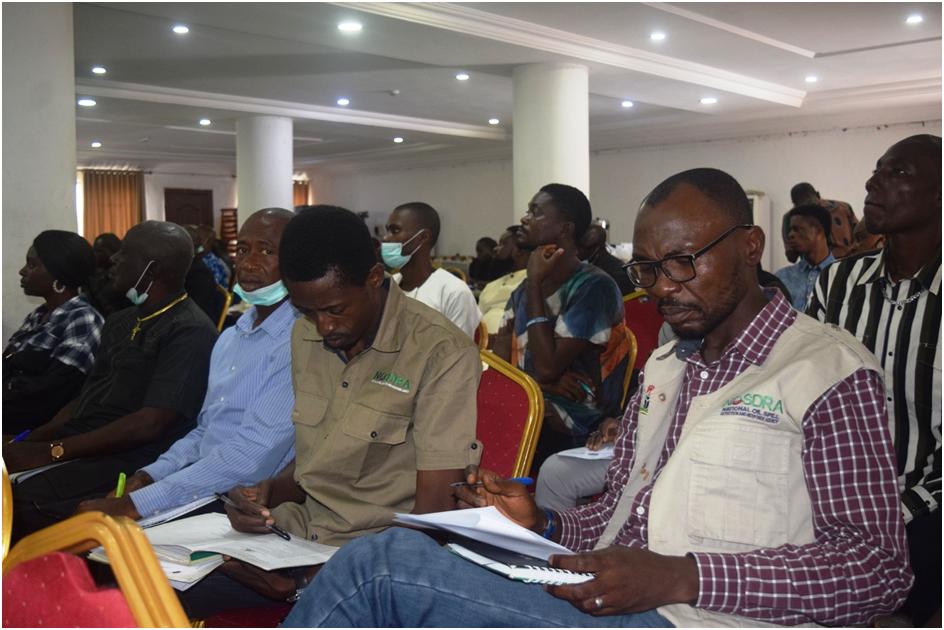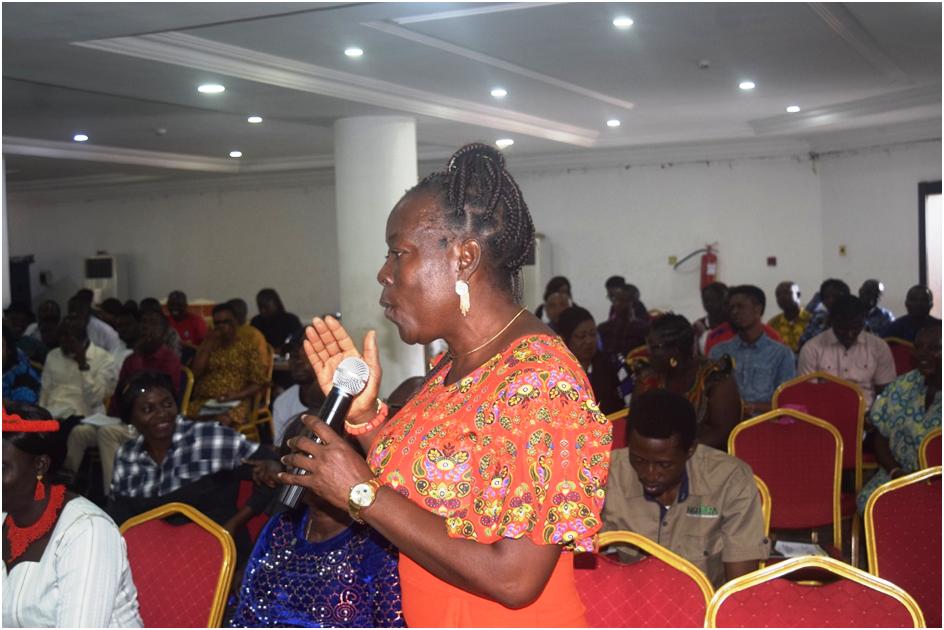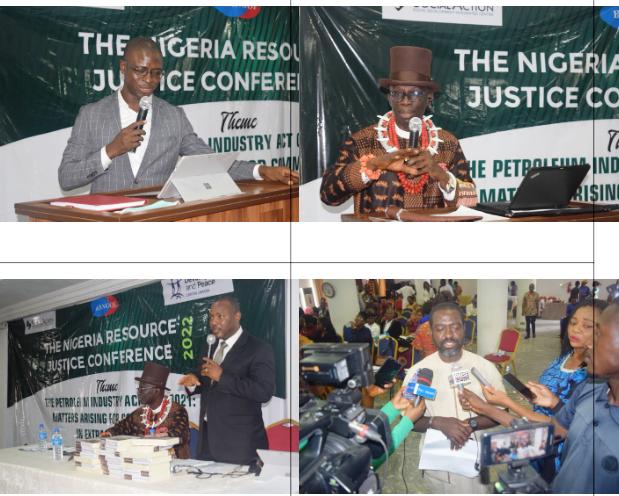THE NIGERIA RESOURCE JUSTICE CONFERENCE 2022
Representatives of oil-bearing communities in the Niger Delta, members of the regulatory institutions, youth groups, traditional rulers, concerned citizens, and the press, gathered in Yenagoa in August 2022 to brainstorm on the Petroleum Industry Act (PAI) 2021 and the matters arising for communities in extraction sites. The Nigeria Resource Justice Conference organised by Alone, Alone, in collaboration with Bayelsa Non-governmental Organisation Forum (BANGOF) was to review the PIA 2021 as it affects the host or oil-bearing communities as provided for the new law. It was also to intimate community leaders and representatives of the communities of salient provisions of the law and how it is likely to shape the relationship between the host communities and the oil exploration companies.
In his welcome address, the Executive Director of Alone, Dr Isaac Asume Osuoka, noted the deliberate design by the state to deny or subjugate the indigenous communities on the altar of state or “public interest” by its delineation of geographical state enclave; an attempt to project the interest of the unitary system at the centre over and above the community interests. In his speech, read by the Senior Programs Officer, Prince Ekpere, Dr Osuoka condemned state policies or laws that deny communities access to the land and its resources, and sought to explore the possibilities for using the new legislation to address the environmental and social problems associated with the petroleum industry. He was concerned that the drafters of the law were more concerned with maximizing profit and revenue potentials of the oil and gas than funding the development of host communities and addressing the dangers of gas flaring and other environmental concerns.
In his Keynote presentation, HRM King Bubaraye Dakolo, Chairman Bayelsa State Council of Traditional Rulers, regretted that despite the allocation of 3% revenue to the host communities by the PIA, fundamental interests of the communities were not taken into consideration. He also decried the situation where the responsibility of ensuring the safety of oil installation was vested on the communities by the Act, whereas the JTF with all their trainings and arsenals have not been able not guarantee same.

In a paper presentation, Dr Pereowei Subai, A lecturer at the Niger Delta University, gave a rundown of the PIA as it affects host communities and the environment they live in. He noted the ambiguity in the definition of certain provisions and terms like the Host Communities which, rather than make for better governance and administration would create more acrimony among communities and with the operators. The stages passed by the Bill before it was passed into law had consistently changed with time and process to eventually hand the communities the short side of the stick

The Chairman of the conference Justice Simon Amaduobogha, Judge of the High Court in Bayelsa, charged the participants to consider how communities could take advantage of what the law currently provides in advancing the standard of living and welfare of the people. This could be in progress while we lobby our lawmakers to initiate the process to amend the law in the future for a better bargain for the oil-bearing communities.

This Nigeria Resource Justice Conference 2022 provided a platform for interaction among community members and leaders, citizen groups, scholars, government agencies and elected representatives as panel sessions were held. The panelists who include experts, activists, agencies, and the victims of environmental pollution from the communities agreed that the communities deserve better than the PAI offered. It was observed that the PIA vested too much powers on the state and the operators much to the disappointment of the communities who bear the brunt of the hazards of the industrial.
Participants at the conference among other issues observed that
- Oil production has displaced local inhabitants from their sacred and ancestral lands.
- Oil production has caused over seven (7) decades of pain and this has resulted in a destruction of the structures of livelihood.
- The PIA is an obnoxious act and has dealt with the Niger Deltans.
- The Act does not protect the people and their environment
- The PIA does not respond to the irresponsible measures taken by security operatives to combat oil theft.
- The PIA does not have provisions that check or prevent oil spillage.
- The PIA does not empower communities to obtain compensation for oil spillages.
- Gas flaring in the Niger Delta has been given statutory backing by the PIA as it allows it to continue while fines are paid to the Federal Government.
- The PIA criminalizes the oil-bearing communities
- The Joint Task Force (JTF) of the Federal Government and its various operations have failed to stop oil theft in the Niger Delta.
- Crude oil worth several billion dollars have been stolen from the Niger Delta under the watch of the JTF.
- It is wrong to criminalize the Niger Delta community for oil that is stolen from the region by people outside the region.
- The PIA is retrogressive, backward and obnoxious.
- The PIA presents another opportunity for capture of community resources as is the case with GMOU mechanism.
RESOLUTION
Participants at the conference resolved that;
- There should be a review of the PIA 2021 (Amendment)
- The PIA should make provisions to compel the decommissioning of oil wells that are no longer in use.
- Niger Delta communities should build a consensus.
- The communities should start organizing to include local experts at the Board of Trustee level.
RECOMMENDATION
At the end of the deliberations, the following recommendations were made;
- There should be targeted sensitization on Niger Delta communities on the provisions of the PIA.
- Niger Delta communities should identify unfriendly provisions of the Act and mobilize demand for the amendment of the Act.
- Government should take steps to simplify the provisions of the PIA for easy understanding of members of the Niger Delta communities.
- Members of the Niger Delta community should be educated on the provisions of the PIA and take advantage of the provision to reposition themselves so as not to be short-changed by the state and operators.
- Niger Delta communities should expose the fault lines of the PIA through town hall meetings, press statements, protests and campaigns to demand accountability from relevant stakeholders.
